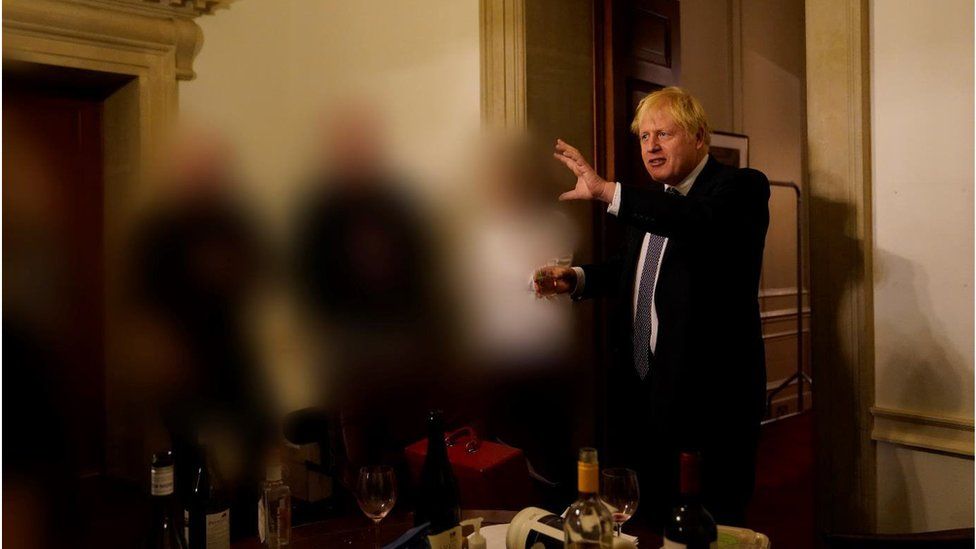ARTICLE AD BOX
 Image source, PA Media
Image source, PA Media
Boris Johnson has said he did not deliberately mislead MPs over Partygate
The Cabinet Office is to publish legal advice criticising a parliamentary inquiry into whether Boris Johnson misled MPs over Partygate.
A Commons committee is investigating what the outgoing prime minister told Parliament about Covid-rule breaking.
Mr Johnson could be suspended from Parliament or even lose his seat if they rule against him.
The government has hired top lawyer Lord Pannick to examine the process and give an opinion.
The Commons Privileges Committee, which is made up of seven MPs from different parties, are looking into whether Mr Johnson misled Parliament.
Some assumed - due to the wording of the ministerial code - that the prime minister would have to be found to have "knowingly" misled MPs to be found in contempt.
But in July the committee announced they would not be taking the prime minister's intentions into account.
Lord Pannick, who sits as an independent in the House of Lords, is expected to question the decision not to take Mr Johnson's intention into account, suggesting this could create a precedent where ministers are fearful to make contributions in the Commons chamber in case they inadvertently mislead.
In his legal opinion, due to be published later on Friday, Lord Pannick is also expected to question aspects of the process, such as a lack of opportunity for witnesses to be cross-examined.
His advice could also highlight some of the public comments committee members have previously made regarding Partygate.
A No 10 source described the legal advice as a "clinical dissection" of the inquiry.
Lord Pannick previously acted for those who brought a case against Mr Johnson when he tried to prorogue Parliament in 2019.
Labour MP Chris Bryant - who chairs the Privileges Committee but is not taking part in the inquiry - defended the committee's approach.
"The question for the Privileges Committee is simple: did he [Boris Johnson] mislead the house, and if he misled the house... is that a contempt of Parliament because he did not correct the record swiftly enough?"
He added that he thought it was "very odd" the Cabinet Office had commissioned the advice "on behalf of a private individual, namely the prime minister".
Parliament voted to launch the inquiry in April, after a series of revelations about events held in and around Downing Street while Covid restrictions were in place.
An official investigation later concluded rules had been broken and a police inquiry led to 83 people, including Mr Johnson himself, being fined.
The prime minister has admitted that previous statements to Parliament - in which he insisted all rules had been followed - had since been proved incorrect, but he believed them to be true at the time.
He denied deliberately misleading MPs.
In July, the cross-party committee said it had decided proving intent would not be necessary after taking advice from their own legal adviser Sir Ernest Ryder and a top Commons official.
The committee's investigation could lead to Mr Johnson being suspended from the Commons and possibly losing his seat.
Mr Johnson will step down as prime minister on Tuesday 6 September, following the election of a new Conservative leader.
Voting in the leadership contest is due to close on Friday at 17:00 BST and the results will be announced on Monday.

 2 years ago
32
2 years ago
32








 English (US) ·
English (US) ·